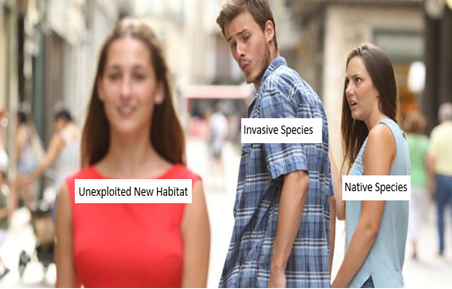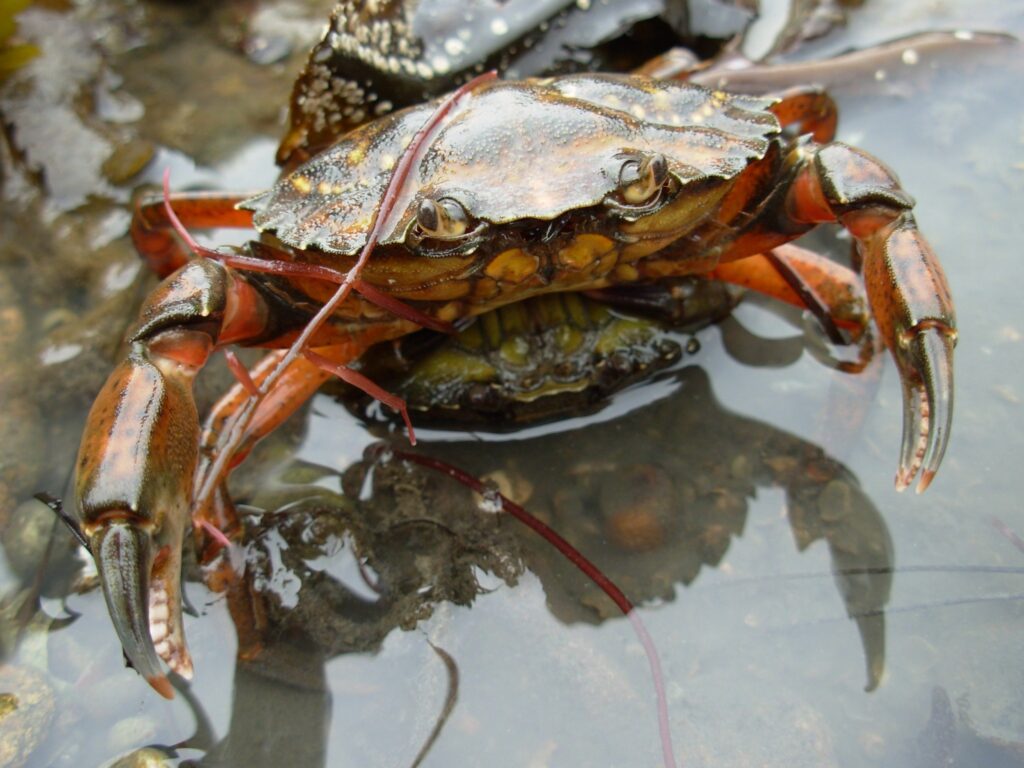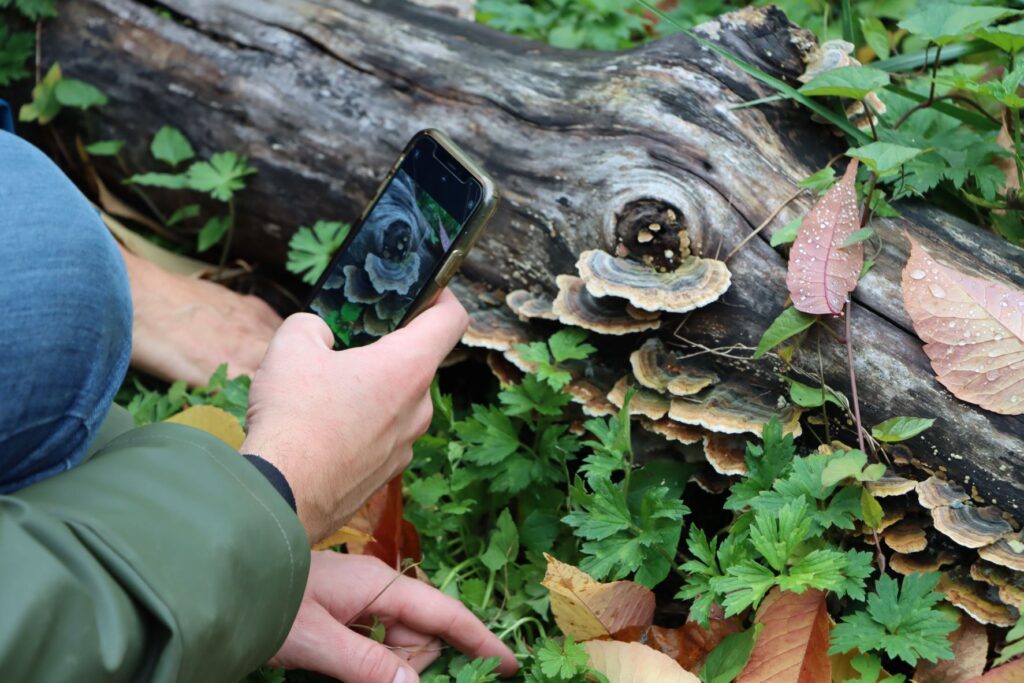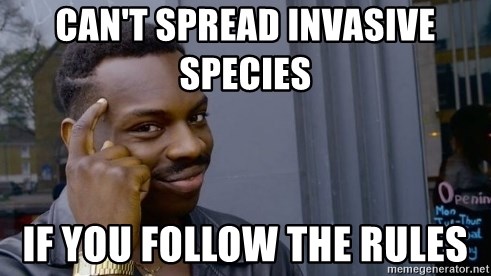Not one person from Northern BC won a prize in a BC-wide contest to photograph invasive species last month.
But that failure is actually the good news, because it shows there are fewer nasty intruders in the north, said Gail Wallin, Executive Director of the Invasive Species Council of BC.

The bad news, she said, is that “with warming winters, more invasive species are able to tolerate the North.” Those warming winters, experts say, are one impact of climate change.
Various contests are underway to raise awareness of invasive species and help stop them before they spread. This spring the Council of the Haida Nation held a draw for a $100 gift certificate for people who sent a picture and location of European Green Crab, which can be destructive to salmon.

This invasive creature “has few predators, aggressively hunts and eats its prey, destroys seagrass, and outcompetes local species for food and habitat,” a U.S. government website explains.
Another solution, suggests Wallin, is if everyone with a mobile phone or camera becomes a community scientist.

She asks people to download the BC app to report invasive species, or use iNaturalist, which has a free app and website, and help build a database of invasive species and how they are moving.
You can also take a free, two-hour, online training course in invasive species offered by BC Parks, and available to anyone simply by clicking on it here.

Many invasives take over because people don’t recognize them, or know better. For example, 60 percent of invasive plant species arrived in BC through landscaping companies and garden centers, which sold them for decorative gardens, said Wallin.
The good news is there are solutions. If more people become aware and act to prevent nasties from spreading, said Wallin, many invasive species can be stopped in their tracks.




